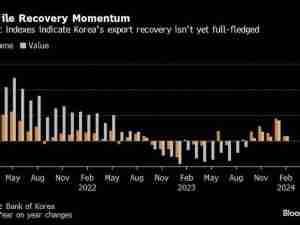American carmakers are losing ground in a shrinking Chinese market, and their problems are mostly tied to a lack of competitiveness rather than the trade war, an industry body said.
The market share of U.S. brands fell to 10.7 percent in the first eight months of 2018 from 12.2 percent a year earlier, according to the China Association of Automobile Manufacturers. The drop was caused by companies including Ford Motor Co. not refreshing their lineups in a timely manner, Xu Haidong, the association’s assistant secretary general, said Tuesday.
While a slowing economy is weighing on the Chinese car demand, Xu said that the trade war has had a limited impact on the market. There are no anti-American sentiments or boycotting of U.S. brands by China’s car buyers, he said at a media conference in Beijing.
Car retail sales have dropped for three straight months in China, with economic woes threatening to end the vehicle market’s almost three-decade expansion. While just a small fraction of cars sold in China are imports, the higher retaliatory tariffs imposed by China on U.S.-made vehicles are causing pricing uncertainties, keeping some consumers away from showrooms.
Ford reported a 36 percent drop in China sales for August amid a falling demand for locally manufactured vehicles. The company’s head of China resigned in January, and it has since cited problems including inadequate dealer profitability and excess stocking of some cars.
Ford said this month it would cancel plans to import a new crossover model from a plant in China after President Donald Trump’s tariffs undermined the business case for bringing the vehicle to the U.S. market. Trump slapped China-built autos with an additional 25 percent levy in July.
In the second quarter through June, General Motors Co.’s sales growth in China slowed to 0.7 percent amid what it called a “softening” of the market.







